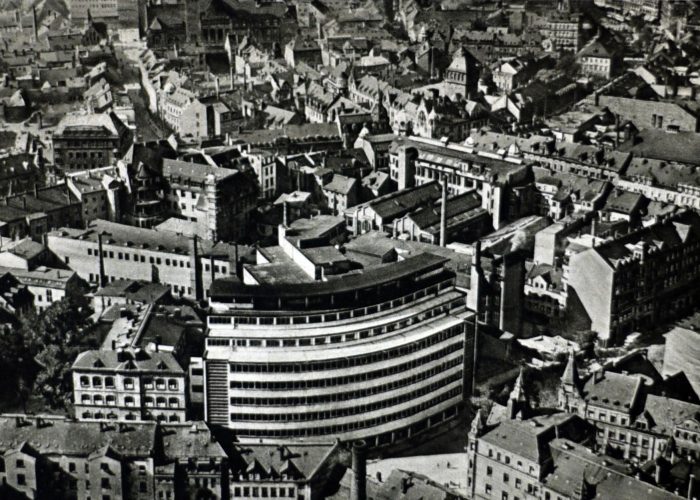Entrepreneur
Salman Schocken was a bold and innovative retail and publishing pioneer. His career started in 1901, when he and his older brother, Simon Schocken, were hired to run a general store in Zwickau. In 1903, the brothers bought the store from its owner, and in 1904 they launched a second store. This humble beginning grew rapidly into a chain of twenty department stores, spread from the state of Saxony to the rest of Germany.
The two brothers were gifted and modern businessmen. They used centralized ordering, bulk purchasing, and rapid turnover of capital. They also transformed the stores’ clientele, focusing on working- and middle-class customers, who were mostly neglected by traditional retailers at that time. In 1929, Simon died in a car accident, and Salman became the sole owner of the business.
Riding on an irresistible combination of high quality merchandise and affordable pricing, the Schocken department stores were embraced enthusiastically by the German people. The anchor stores were in Nuremberg (1926), Stuttgart (1928), and Chemnitz (1931). Acclaimed for their daring avant-garde architecture, these stores, each occupying a whole building, were designed by Erich Mendelsohn, one of the most important architects of the 20th century.
More akin to today’s IKEA than to a 1920’s business, Schocken built his own factories, established labs for testing products for quality and functionality, developed a design studio for advertisement and product design, and offered a progressive package of social benefits to his employees, complete with company-owned countryside resorts. He also established a thriving mail-order department that supplied affordable, high-quality clothing, furniture, and accessories throughout Germany.
Schocken was well aware of his retail innovations, and credited his success with being a risk-taker and a meticulous yet agile planner. His work was well recognized by his peers. He was invited to give lectures before the German Ministry of Economics, and was elected to be chairman of the Organization of German Department Stores. He was also a member of the executive boards of the Organization of German Retailers and the German National Economic Council.
Success in business gave Schocken the financial resources and intellectual freedom to branch off into cultural entrepreneurship. He launched the publishing house Schocken Verlag in Berlin (1931), the Schocken Publishing House in Tel Aviv (1939), and Schocken Books in New York (1945). He also bought a small newspaper in Tel Aviv, named Haaretz (1935), and installed his son Gustav (Gershom) as publisher and chief editor.
Schocken supported many scholars, writers, and artists, and founded the Institute for Hebrew Poetry and the Institute for Jewish Mysticism, both housed in the Schocken Library in Jerusalem. The same eye for quality and common sense in business served Schocken well in building his cultural empire: “One should take the material of language,” he wrote, “just as seriously as iron, steel, cotton, or real estate.”
